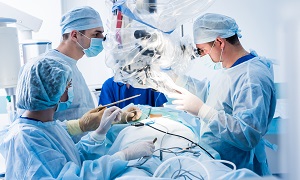Best Doctors in India for Rheumatoid Arthritis treatment
Best Hospitals in India for Rheumatoid Arthritis treatment
- City: Bengaluru, India
Hospital Highlights:
- Fortis Hospital Bannerghatta, Bengaluru was established in 2006.
- The hospital is a 276 bedded multi-specialty tertiary care facility.
- The hospital specializes in cutting-edge medical technology and dedicated patient care services.
- The hospital is equipped with state-of-the-art technologies like trans-radial angioplasty, trans-abdominal cardiac surgery, and computerized TKR navigation surgery.
- The hospital provides specialty medical services in cardiology, cardiac surgery, orthopedics, neurology, neuro-surgery, GI, and Minimal Access Surgery (MAS).
- City: Chennai, India
Hospital Highlights:
- Fortis Malar was established in 1992 and was formerly known as Malar Hospital.
- The hospital specializes in cutting-edge medical technology and dedicated patient care services.
- The hospital is multi-specialty, tertiary care facility with 180 beds.
- The hospital offers comprehensive medical care in specialties such as cardiology, cardio-thoracic surgery, neurology, neurosurgery, orthopedics, nephrology, gynecology, gastroenterology, urology, pediatrics, and diabetes.
- City: New Delhi, India
Hospital Highlights:
- Established in 1996, Pushpawati Singhania Research Institute is one of the top hospitals in the NCR region, as well as one of the top facilities in India for gastroenterology. The hospital is one of South Asia’s first institutes in medical and surgical treatment for diseases related to digestion.
- The hospital is equipped with state-of-the art facilities coupled with the latest equipment as well as renowned consultants from various parts of India as well as other parts of the world.
- City: New Delhi, India
Hospital Highlights:
- State-of-the-art technology and devoted healthcare professionals have been brought together under one roof at Venkateshwar Hospital to provide genuine medical care. The hospital’s professionals work together as a team to deliver the best possible treatment to their patients, using the most sophisticated equipment and information technology.
- Venkateshwar Hospital’s mission is to attain global excellence in healthcare by employing evidence-based, ethical clinical practices and cutting-edge technology by a team of highly skilled experts.
- City: New Delhi, India
Hospital Highlights:
- Sir Ganga Ram Hospital, New Delhi is known to provide the latest medical procedures with the latest technology in all of its units.
- The hospital has a team of reputed doctors, nurses, and healthcare professionals that ensure that patients receive quality care at affordable costs.
- Staffed with a team of highly qualified doctors, dedicated nurses, and paramedical and non-medical staff, the hospital aims to lead in healthcare delivery, medical education, training, and research.
- As per the vision of the founder, the hospital also provides free treatment to the economically weaker sections of society.
- Sir Ganga Ram Hospital also provides training to young doctors under the Diplomate in National Board(DNB) program. The DNB program at the hospital was started in 1984 and it is known for currently running the maximum number of DNB specialties in the country. It also has the distinction of having the first bone bank in India.
- City: Kerala, India
Hospital Highlights:
- Established in 2019, Apollo Adlux Hospital is the first Apollo Hospital in Kerala and the 73rd hospital owned by Apollo Group in India. With the state’s most advanced, comprehensive healthcare infrastructure and cutting-edge technologies, Apollo Adlux Hospital stands as an example of medical excellence in Kerala.
- With over 34 multi-specialty departments, the hospital believes in providing the best quality treatment to its patients at affordable rates, ensuring comfort at their difficult times.
- The 300-bed hospital is managed by a team of highly qualified and experienced experts who delivers exceptional hospitality to their patients and treats them with great compassion.
- With its affiliation with the Apollo Hospitals Group, the hospital aims in providing patients with top-notch healthcare services while also serving communities in Kerala.
- The hospital has good railway and road connections, and is conveniently close to Cochin International Airport.
- City: Gurugram, India
Hospital Highlights:
- Situated near DLF Cyber City, Gurugram, Narayana Superspecialty Hospital is one of the top medical facilities in the Delhi NCR region, catering to the needs of the people. Known for its commitment to quality medical care and patient service, the hospital is a state-of-the-art facility with planned and well-equipped sections, which includes a spacious OPD area as well as comfortable patient rooms.
- It is the closest super-specialty hospital from Indira Gandhi International Airport towards Gurugram, and also the nearest super specialty hospital from DLF Cyber City. It is also close to major residential areas in Gurugram.
- It is part of the renowned Narayana Health Group. Established in 2000, by Dr. Devi Shetty, a renowned cardiac surgeon, it has grown to be one fo India’s leading healthcare groups.
- City: Noida, India
Hospital Highlights:
- Fortis Hospital, Noida, stands as one of the oldest and most trusted healthcare institutions in the region, setting a benchmark for comprehensive medical care.
- As the second mega hub hospital in the Fortis Healthcare Group, Fortis Hospital, Noida, upholds a legacy of trust among more than 1.2 million patients. By integrating top-tier professionals with cutting-edge technology, the hospital delivers superior treatment across various medical disciplines.
- Specializing in advanced Neurosciences, Orthopedics, Kidney and Liver Transplant Programmes, Fortis Hospital, Noida has successfully performed over 1,500 transplants, solidifying its reputation as a leader in specialized medical interventions.
Rheumatoid Arthritis
A chronic, inflammatory disorder affecting more than just joints is called rheumatoid arthritis. It can damage a wide variety of body systems in some people, like lungs, skin, heart, eyes and blood vessels. It is an autoimmune disorder that takes place when the immune system attacks its own body tissues mistakenly. The condition affects the lining of the joints. This causes a painful swelling resulting in joint deformity and bone erosion.
Causes of Rheumatoid Arthritis
When your immune system attacks the synovium (the lining of the membranes surrounding the joints), it causes rheumatoid arthritis. The synovium thickens due to the resulting inflammation that destroys the cartilage and bone within the joint. The ligament and the tendons hold the joint together. In rheumatoid arthritis, they weaken and stretch. The joint loses its shape & alignment because of this. Your genes don’t cause the disease but make you susceptible to environmental factors like an infection from bacteria and viruses which trigger the disease.
Symptoms of Rheumatoid Arthritis
The symptoms of rheumatoid arthritis may be:
- Joint stiffness that worsens in the morning or after an inactivity.
- Warm, tender and swollen joints.
- Fever, fatigue and loss of appetite.
In the initial stages, the disease affects the smaller joints, especially the joints attaching your fingers to the hands and the toes to the feet. With the progression of the disease, symptoms start spreading to the ankles, wrists, elbows, knees, shoulders, and hips. The symptoms may also occur on the same joints on both sides of the body in some cases. A significant number of people suffering from rheumatoid arthritis experience other signs and symptoms without the involvement of the joints. The disease may affect other non-joint structures like heart, skin, bone marrow, eyes, salivary glands, blood vessels, lungs, nerve tissue and kidneys.
The symptoms vary in severity and the person may or may not experience the symptoms at times. There might be a period of increased disease activity or a period of relative remissions when the pain and swelling disappear. The disease may cause the joints to reform and ultimately, shift from their place to some other.
Diagnosis of Rheumatoid Arthritis
The disease is difficult to diagnose initially. However, your doctor can check your joints for redness, swelling and warmth during physical examination along with checking the muscle strength and your reflexes.
Blood tests
People who suffer from rheumatoid arthritis experience increased ESR (erythrocyte sedimentation rate) or CRP (C-reactive protein). This indicates that an inflammatory process is present in the body. Other blood tests may include looking for the anti-cyclic citrullinated peptide (anti-CCP) antibodies or rheumatoid factor.
Imaging tests
Your doctor may ask you to take X-rays to aid in tracking the progression of the disease in the joints of your body over time. Ultrasound tests and MRI help your doctor understand the severity of rheumatoid arthritis in your body.
Treatment options for Rheumatoid Arthritis
Medications
- Steroids- Corticosteroid medications like prednisolone reduce pain, inflammation and slow down the damage to the joints. The side effects of these drugs include weight gain, thinning of bones and diabetes. Your doctor may prescribe corticosteroids to relieve the acute symptoms.
- NSAIDs- Non-steroidal anti-inflammatory drugs (NSAIDs) reduce the inflammation and relieve the pain in your body. Your doctor may prescribe stronger NSAIDs to you. The side effects of these drugs are heart problems, stomach irritation and kidney damage.
- DMARDs- Disease-modifying antirheumatic drugs slow down the progression of the disease while saving the joints and tissues from permanent damage due to rheumatoid arthritis. The most common disease-modifying antirheumatic drugs are leflunomide (Arava), methotrexate (otrexup, trexall), sulfasalazine (Azulfidine) and hydroxychloroquine (Plaquenil). The side effects of these drugs may be bone marrow suppression, liver damage and severe lung infections.
- Biologic agents- Biologic agents or biologic response modifiers are a new class of disease-modifying antirheumatic drugs and include adalimumab (Humira), baricitinib (Olumiant), etanercept (Enbrel), infliximab (Remicade), sarilumab (Kevzara), tofacitinib (Xeljanz), abatacept (Orencia), certolizumab (Cimzia), golimumab (Simponi), rituximab (Rituxan), tocilizumab (Actemra), and anakinra (Kineret).
They target some parts of the immune system triggering inflammation and causing joint & tissue damage. These drugs also increase the risk of infection. Biologic DMARDs are the most effective upon pairing with a nonbiologic DMARD like methotrexate.
Therapy
Surgery
Synovectomy
Synovectomy is performed on hips, knees, wrists, elbows and fingers; it removes the inflamed lining of the joint called synovium.
Tendon repair
Joint damage and inflammation cause the tendons around your joints to rupture or loosen. Your doctor will repair the tendons around the joints.
Joint fusion
Your doctor may recommend surgically fusing a joint to realign or stabilize a joint. It also relieves pain when joint replacement is not a favorable option.
Total joint replacement
Your doctor or surgeon may remove the damaged parts of the joint during the surgery and replace them by inserting a prosthesis made from plastic and metal.
Risks and complications
There is an equal risk of infection, bleeding and pain during surgeries. Your doctor may recommend the surgery best suited for you according to your condition and severity of the disease. You can also discuss the benefits and possible risks of each surgery before opting for one with your doctor.













